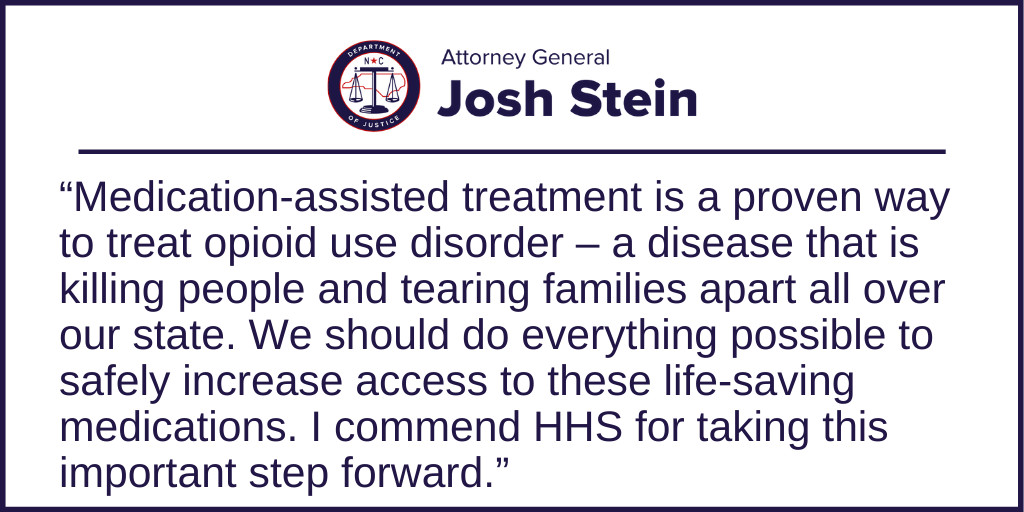
For Immediate Release:
Friday, January 15, 2021
Contact:
Laura Brewer (919) 716-6484
(RALEIGH) Attorney General Josh Stein today commended the U.S. Department of Health and Human Services (HHS) for expanding access to treatment for opioid use disorder. Specifically, HHS eliminated some unnecessary barriers on physicians who wish to prescribe buprenorphine, an important medication for those struggling with opioid use disorder. Attorney General Stein led a bipartisan multi-state letter by 39 states to Congress about this issue in 2019, recommending this change, among others.
“Medication assisted treatment is a proven way to treat opioid use disorder – a disease that is killing people and tearing families apart all over our state,” said Attorney General Josh Stein. “We should do everything possible to safely increase access to these life-saving medications. I commend HHS for taking this important step forward.”
Doctors who wish to prescribe buprenorphine are required to satisfy certain requirements and obtain special permission from the Drug Enforcement Administration (DEA), known as an x-waiver. Removing some of these certification requirements will make it easier for doctors to prescribe life-saving buprenorphine, which is considered the gold standard of opioid use disorder treatment. While this change does not include nurse practitioners, physician assistants, or doctors treating more than 30 patients, it marks important progress.
“During the COVID pandemic, we are experiencing a record number of overdose deaths in North Carolina and in the nation,” said Dr. Blake Fagan, M.D. and Chief Education Officer at the Mountain Area Health Education Center (MAHEC) in Asheville. “Reducing the barrier to physicians prescribing buprenorphine, a life-saving medication for persons with opioid use disorder, is a welcome step forward! As this will allow us to prescribe more buprenorphine for appropriate patients, I am very hopeful that we will see overdose deaths go down.”
Congress previously addressed another of Stein’s recommendations in his 2019 letter by addressing the privacy concerns. Specifically, as part of the CARES Act, Congress made much needed improvements to patient privacy rules.
###
